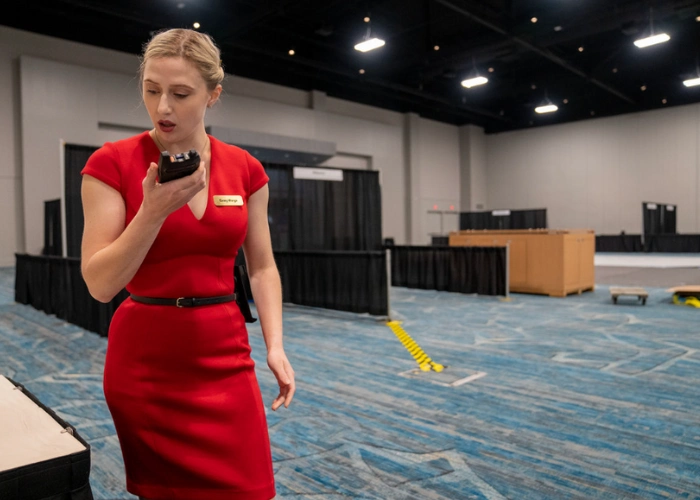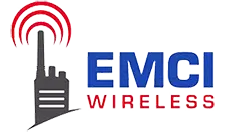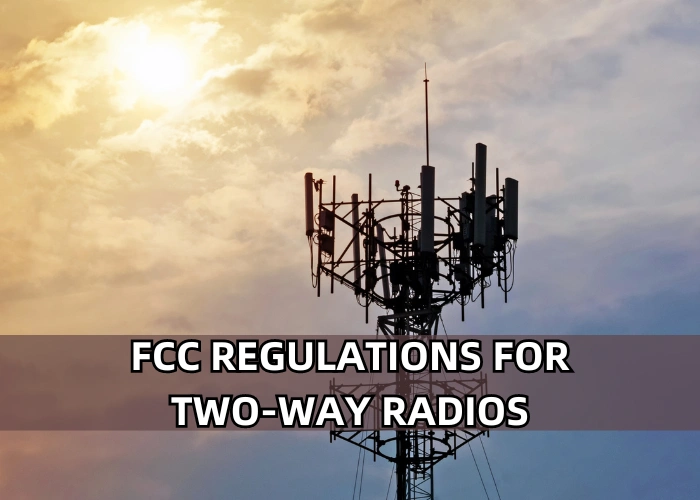Radio communication serves as a vital lifeline across many industries. And it’s about more than just public safety. Today, industries from law enforcement, EMS, and fire services to construction to manufacturing and so much more, rely on two-way radios to keep workers, customers, and the general public, safe.
However, regardless of the usage, the Federal Communications Commission (FCC) has strict regulations in place to govern the use of these radios. And while unlicensed radios are popular due to their ease of use and low upfront cost, they can cause some serious risks. When these devices operate without FCC approval, it can create not just operational hazards, but some pretty hefty legal ramifications that can far outweigh those initial perceived benefits.
In this article, we’ll answer the question: are unlicensed radios worth the risk? And, we’ll help you understand what non-compliance could mean for you and your business.
What are the FCC Regulations for Two-Way Radios?
So, the obvious question to ask is what are the FCC regulations for two-way radios and do all radios apply? To be clear, the FCC is the national authority that regulates all communications the take place “over the air.” This includes two-way radios, including the radios used in the public safety space. The goal of the FCC regulations is to ensure that radio frequencies are used properly to avoid interference. That said, not all radios are subject to the same rules.
Typically most business radios require an FCC license, UHF or VHF radios intended for business purposes fall under regulatory guidelines that require licensing for operation. These licenses ensure that radio frequencies are used efficiently and without interference, helping businesses maintain reliable communication channels while adhering to legal requirements. Therefore, if you’re utilizing such radios for your business, obtaining the necessary license is likely a crucial step in ensuring compliance and uninterrupted communication.
Conversely, radios used within the Family Radio Service (FRS), Multi-Use Radio Service (MURS), Digital License-Free Radio (DLR), and Digital Trunking Radio (DTR) series do not require an FCC license. This is due to their lower power output—generally radios with less than two watts of power output can operate license-free, which makes them a wise for short-range communication such as within a single building or immediate vicinity.
Radios with a power output greater than two watts require a license due to their extended range and potential to cause interference with other communications. Unlicensed radios are frequently found in settings where quick and easy communication is needed, such as in recreational activities, small businesses, and certain types of customer service operations. But using these more powerful unlicensed radios can expose users to significant FCC risks and compliance issues.

Risks of Using Unlicensed Radios
Many people adopt the mindset that it is okay to use unlicensed radios, as long as you don’t get caught. It’s a similar way of thinking to speeing in a car—we can speed all we want, and as long as we don’t get pulled over by a police officer, no harm, no foul. But using that analogy, its critical that drivers realize that when they’re speeding, they are potentially making driving more difficult for others sharing the road. If you’re the speeder, you may inadvertently cut someone off. You may cause an accident, and it may be completely unbeknownst to you.
Well, with two-way radios, it’s a similar situation. Using your unlicensed radios might seem like a trivial thing. But what happens when your use of your radio keeps an urgent emergency message from getting through? Your lack of adherence to FCC regulations could cause someone else to get hurt (or worse).
This all said, let’s get into some more specifics on the risks of using unlicensed radios and why FCC enforcement is so imperative.
The Communications Act of 1934
The Communications Act of 1934 established the regulatory framework that the FCC uses to oversee the nation’s airwaves. Under this act, the use of radio frequencies is tightly controlled to prevent interference, ensure public safety, and maintain a standardized system of communication. When it comes to unlicensed radios, this foundational legislation plays a critical role in defining legal boundaries and enforcement actions.
Legal Consequences
Using unlicensed radios can lead to severe legal consequences under the Communications Act of 1934. If a user operates these radios willfully and knowingly without a license, they may face hefty penalties. For instance, a violation can result in a fine of up to $10,000 or imprisonment for up to one year, or both.
Should the operator commit subsequent violations, the potential imprisonment term can extend up to two years. Even smaller infractions, like violating specific FCC rules, can incur fines of $500 per day during ongoing violations.
Operational Risks
The operational risks associated with using unlicensed radios are significant. Such interference can disrupt critical communications, from emergency services coordinating during crises to businesses relying on precise communication networks. For example, there have been documented cases where unlicensed radio use has interfered with the communication systems of public safety agencies, leading to delays in emergency response times and coordination failures during critical incidents.
For example, Jack Gerritsen was involved in a significant legal case due to his misuse of radio transmissions. Gerritsen faced multiple charges for willfully interfering with radio communications, including those critical to public safety and emergency services. He was convicted of several misdemeanors and a felony for his disruptive activities spanning several years, which included blocking communications of the US Coast Guard and the American Red Cross. Ultimately, Gerritsen received a seven-year prison sentence and was ordered to participate in a substance-abuse program.
Reputational Damage
Beyond legal and operational risks, using unlicensed radios can severely damage a business’s reputation. Compliance with FCC regulations is often seen as a marker of legitimacy and reliability. When businesses choose to bypass these regulations, they risk losing the trust of their clients, partners, and the general public.
This loss of trust can lead to a decline in customer base, difficulties in securing partnerships, and potential barriers to future business opportunities.
Business Benefits of FCC Compliance
We like to believe in the good in people. And, ultimately, no one wants to be the reason that someone else was injured, or worse, because lack of compliance with the law. And the same holds true when it comes to radio operations.
So, while it might take a bit of upfront work to get your FCC license, it’s the right thing to do. To do so, you can apply online or fill out the FCC Form 605, but it is better to leave it to FCC licensing experts like us to help you get your business FCC radio license. Whether you need your first FCC license, or your renewal is coming due, we’ve got you covered. We make the process painless by handling everything for you from start to finish, once approved, your license will be granted for ten years.
Getting licenses through the FCC can help you achieve the following benefits:
Legal Certainty
Adhering to FCC regulations offers businesses legal certainty, ensuring that all operations involving radio communications are fully compliant with the law. This compliance not only mitigates the risk of legal repercussions but also provides peace of mind to business owners and operators.
Knowing that their radio operations meet federal standards allows businesses to focus on growth and innovation without the looming threat of legal challenges or penalties disrupting their operations.
Operational Efficiency
Using licensed radios significantly enhances operational efficiency. Licensed devices are tailored to meet specific frequency allocations, reducing the likelihood of interference that can plague unlicensed systems.
This ensures clearer, more reliable and private communication channels, which are a must for coordinating activities, especially in fields where precision and reliability are paramount. Additionally, licensed radios come with manufacturer support and maintenance, and that’s a big bonus.
Business Reputation
Compliance with FCC regulations can help grow your credibility among clients, partners, and the broader industry. When businesses demonstrate their commitment to legal and ethical operations, especially in communications, they build trust.
This trust is fundamental for developing strong relationships and can be a significant competitive advantage. Being known for compliance also reassures stakeholders that the business prioritizes safety, reliability, and corporate responsibility.

How to Ensure FCC Compliance with Motorola Two-Way Radios
Ensuring compliance with FCC regulations when using Motorola two-way radios is a must for any business, and EMCI Wireless is here to help. We offer full FCC licensing services so make sure to make a no-cost professional consultation with us, so that you can determine the specific communication needs for your organization. This discussion will help our team in guiding you in choosing the appropriate Motorola two-way radios and ensure you meet FCC compliance with the proper licensing. Our consultation will look at the following:
- Operational environment
- Frequency needs
- Power requirements
We also recommend staying updated with continuous compliance by subscribing to FCC updates, reading past FCC blogs, and monitoring the FCC’s website for any changes in regulations. Additionally, be sure to maintain records of your radio frequencies and licenses. Doing so can help in the event of an inspection or compliance check.
Ensure FCC Compliance by Licensing Your Two-Way Radios: Failing to Do So is Not Worth the Risk
We’re in the business of providing high-quality Motorola communications solutions across central and southern Florida, including managing all FCC needs for businesses and organizations that require a frequency plan. In doing so, we want to help all of our clients be not only be compliant with the FCC regulations, but have the knowledge and skill to understand their radio systems. If you have a communications need in your organization and want to ensure adherence to FCC regulations, contact us today. We look forward to helping you solve your communications challenges effectively, and legally.






